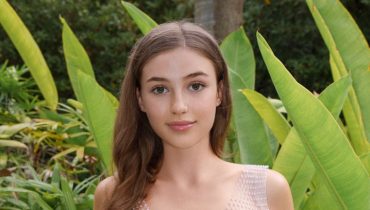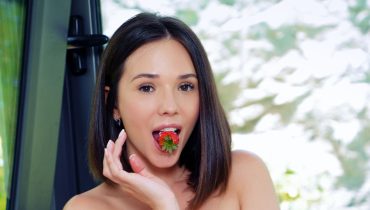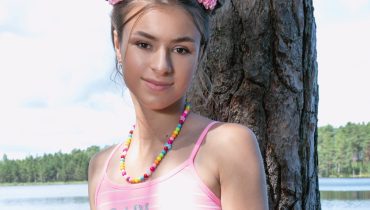For Abigail Evans, going vegan was more than a dietary choice — it was a commitment to compassion and conscious living. “I thought once I cut out meat and dairy, I’d feel unstoppable,” she recalls. “And at first, I did. I had energy, clarity, and purpose.”
But six months later, fatigue crept in. “I’d wake up tired, my hair looked thinner, and I caught every cold that went around.” After a routine blood test, her doctor pointed out the obvious: she was low in vitamin B12 and iron. That’s when Abigail began exploring multivitamins for vegans — not as shortcuts, but as safety nets.
When Healthy Eating Isn’t Always Enough
“People think a vegan diet automatically equals perfect health,” Abigail says. “But I learned that even the cleanest diet can miss key nutrients.” While fruits, vegetables, legumes, and grains provide abundant fiber and antioxidants, several essential vitamins are scarce in plant sources. According to the U.S. Department of Agriculture, vegan diets often fall short in vitamin B12, vitamin D, calcium, iodine, zinc, and omega-3 fatty acids — nutrients that support energy, bone density, and immune balance.
Abigail remembers her doctor’s words clearly: “Plants give you life, but supplements keep you thriving.” That idea shifted her mindset. Instead of viewing supplements as artificial, she began to see them as complementary. “Multivitamins aren’t replacements for food — they fill the cracks,” she says.
The Science Behind Vegan Nutrition Gaps
Human physiology relies on micronutrients for hundreds of biochemical reactions. Vitamin B12 is essential for nerve function and red-blood-cell formation, yet it’s produced only by microorganisms found in animal products or fortified foods. “That’s the big one,” Abigail explains. “Without B12, fatigue and brain fog hit fast.” According to the National Institutes of Health (NIH), up to 86 % of untreated vegans show low B12 markers within two years of adopting the diet.
Iron is another concern. While lentils and spinach contain non-heme iron, it’s less bioavailable than the heme iron in meat. “My ferritin levels were barely above the minimum,” she says. Pairing vitamin C-rich foods with iron sources improved absorption, but her doctor still recommended a low-dose supplement. Calcium and vitamin D proved equally tricky — especially for those who avoid fortified plant milks or live in low-sunlight regions. “I thought almond milk was enough,” she says. “It wasn’t.”
Choosing the Right Multivitamin for Vegans
When Abigail first walked into a supplement store, she was overwhelmed by labels: gummies, capsules, raw, fermented, methylated, organic. “I felt like I needed a degree in chemistry,” she jokes. After weeks of research, she realized not all multivitamins were truly vegan. “Some use gelatin capsules, lanolin-derived vitamin D3, or animal-based omega oils.” She now checks for third-party certifications like Vegan Society, NSF Certified, or USP Verified.
Her current routine includes a daily vegan multivitamin containing methylcobalamin (B12), cholecalciferol from lichen (vitamin D3), calcium citrate, zinc gluconate, iodine from kelp, and DHA from algae oil. “It covers my bases without megadosing,” she says. “I want balance, not excess.”
Key Nutrients Every Vegan Should Watch
- Vitamin B12: Vital for DNA synthesis and neurological health. The Harvard Health Review recommends 250 mcg per day from supplements or fortified foods for vegans.
- Vitamin D3: Supports calcium absorption and immune regulation. The Mayo Clinic notes that D3 from lichen is bio-equivalent to animal-derived sources.
- Calcium: Crucial for bone density. Adults need about 1 000 mg daily; fortified tofu, sesame, and leafy greens help, but many still fall short.
- Iron: Plant iron needs vitamin C for absorption — think lentils plus bell peppers.
- Zinc and Iodine: Essential for thyroid health and immune defense; seaweed, nuts, and whole grains help, but inconsistent soil iodine makes supplementation wise.
- Omega-3 (DHA/EPA): Brain-supporting fatty acids available from algae-based softgels instead of fish oil.
Abigail emphasizes that dosage matters. “Too much of a good thing can backfire,” she says. “More vitamin A or iron than you need can actually harm the liver or cause oxidative stress.” She sticks close to the NIH Dietary Reference Intakes.
Personal Transformation Through Smart Supplementation
Within three months of consistent use, Abigail noticed measurable change. “My energy was back, my hair stopped shedding, and my mood was steady,” she says. Her follow-up blood tests confirmed normal B12, ferritin, and vitamin D levels. “It wasn’t placebo — it was proof that science and mindfulness can coexist.”
Beyond physical health, supplementation reshaped her relationship with food. “I stopped moralizing nutrition,” she explains. “Being vegan isn’t about perfection — it’s about awareness.” Now she teaches workshops on sustainable nutrition, helping others avoid the pitfalls she faced. “A balanced vegan doesn’t rely only on plants or pills,” she says. “They combine both intelligently.”
Common Myths About Vegan Multivitamins
Abigail debunks frequent misconceptions:
- “If you eat enough greens, you don’t need supplements.” False. Many plant foods lack B12 and D3 entirely.
- “Multivitamins cause dependency.” Wrong. They restore baseline nutrient levels — not addiction.
- “Natural equals safe.” Not always. Herbal blends may interact with medication; purity testing matters.
- “Only older adults need supplements.” Younger vegans, especially pregnant women, require even higher micronutrient precision.
Abigail stresses professional guidance. “Always pair curiosity with blood work,” she says. “Numbers don’t lie — fatigue does.” She recommends checking serum B12, ferritin, and 25-hydroxyvitamin D twice a year.
How to Build a Sustainable Vegan Supplement Routine
Through experience, Abigail created a routine that blends nutrition and habit psychology:
- Morning ritual: A smoothie with spinach, orange, and chia seeds; multivitamin with breakfast.
- Lunch pairing: Lentil salad with citrus dressing for iron absorption.
- Evening check-in: Brief mindfulness log — energy, focus, mood — tracked in her nutrition app.
- Monthly review: “If I feel sluggish for more than two weeks, I test my levels,” she says.
“Supplements shouldn’t replace intuition,” she adds. “They should enhance it.” Her approach resonates with the Healthline Vegan Vitamin Guide, which emphasizes consistent micro-dosing and nutrient synergy over sporadic megadoses.
The Role of Technology in Modern Nutrition
Abigail also uses technology to stay accountable. Apps like Cronometer and MyNetDiary allow her to log micronutrients, compare to the FDA Daily Values, and identify gaps. “I learned I was low in zinc long before symptoms appeared,” she says. “Knowledge prevents depletion.”
She even follows vegan nutritionists on social media but cautions against “wellness influencers” who promote unverified brands. “Marketing can disguise pseudoscience,” she warns. “Look for clinical citations, not celebrity endorsements.”
Reflecting on her journey, Abigail sees multivitamins as a bridge between idealism and realism. “Veganism taught me empathy; supplementation taught me humility,” she says. “Nature gives us most of what we need, but modern life takes a lot out of us — pollution, stress, processed food, limited sunlight. Multivitamins simply help us keep up.” Her closing advice captures the spirit of balance: “Take responsibility, not extremes. Eat whole foods, move often, sleep deeply — and yes, take your vitamins.” She smiles. “That’s not weakness; it’s wisdom.”





























































